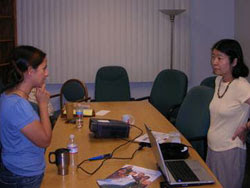Most local lockdowns have their share of nuttiness (for example, in Florida and D.C., you can walk through parks but not sit down) and excesses (a Philadelphia man was handcuffed for playing with his daughter in an empty softball field). But so long as the ratio of good sense to nonsense is relatively high, for the most part Americans have gone along. Irate residents and partisans seeking to exploit these measures for political gain have been marginalized.
But that changed in Michigan with Whitmer's new executive order that not only extended the state's shelter-in-place mandate till the end of the month—something most everyone had expected and accepted—but added arguably the country's most draconian and nonsensical provisions.
Even as neighboring Indiana and Ohio are relaxing their orders and the federal Cybersecurity and Infrastructure Security Agency guidelines are classifying more industries as "essential" so that they can reopen and minimize the economic hit from the shutdown, Whitmore has gone the other way on the pretext that Michigan has the third-highest share of coronavirus cases in the country.
She ordered big box stores to stop selling paint, carpets, and other home-improvement material not considered essential, though as Reason's Billy Binion reported, she does allow lottery ticket sales, probably because the proceeds go to the state's K-12 funds.
She shut down lawn-care services. Contender's Tree and Lawn Specialist Inc., a company that purchased hundreds of thousands of dollars of fertilizer and other supplies had to stop spraying its plants in the middle of spring season, risking its entire crop. (Michigan's gardening industry, with an estimated retail value of $580 million to $700 million and 9,000 employees, faces a complete loss this year if it isn't able to operate soon.)
In addition to large gatherings, she also barred families that don't share a home from getting together, preventing one man from seeing his girlfriend of 14 years because she doesn't live with him.
She forbade families from traveling to their vacation cottages in northern Michigan, a popular springtime activity in Michigan. She shut down golf courses and prohibited motorized boats, although non-motorized ones are allowed, for some reason.
This is arbitrary and irrational micromanagement that has understandably irritated many residents.
What's more, Whitmer has decreed that violations will count as misdemeanors punishable by up to a $1,000 civil fine. Criminal penalties are also on the table, should prosecutors choose to pursue that. Meanwhile, Michigan Attorney General Dana Nessel has gone full China and is encouraging employees to rat out their bosses and call the police if they try to open up shop in violation of the lockdown.
What's so outrageous about all this is that the new businesses and activities that Whitmer is targeting can all be safely conducted while adhering to strict social distancing rules. But Whitmer's theory apparently is that anything beyond absolutely essential conduct jeopardizes frontline workers. This is the precautionary principle on steroids. It considers even an infinitesimal increase in secondary risk as unacceptable, a mindset that could justify stopping virtually any activity anytime.
Jim



